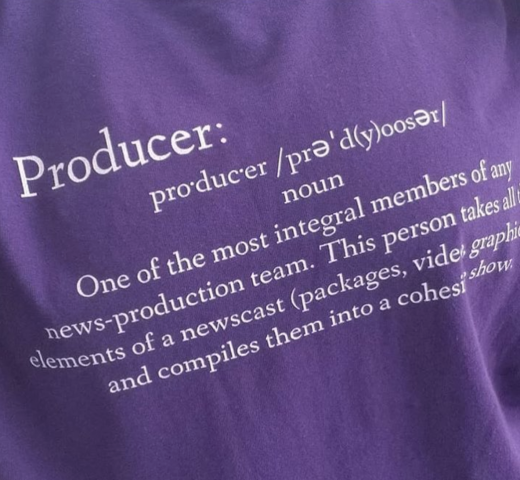How to Build a Great
Relationship With Your
Public Information Officer (PIO)
How to Build a Great Relationship With Your Public Information Officer (PIO)
Written by News Gal
🕒 September 12, 2018
As a TV News reporter, a Public Information Officer, or PIO, can be your best friend or your worst enemy.
Sometimes, they’re both.
Most large law enforcement agencies have dedicated PIOs. Their job is to deal with the media, and, in my experience, some of them are great at it while others suck.
There’s also a troubling trend that a lot of PIOs are starting to follow, which is posting a YouTube or Facebook video instead of doing interviews with local reporters. Why is that a problem? Because it means they control 100% of the story. It means you’re not getting all of the information, and it means you’re likely not getting the truth.
When an agency refuses to do interviews, but instead releases a video that they tell TV stations to use, it’s dangerous. Our job is to hold people accountable, and we can’t do that if we don’t have the opportunity to ask questions.
One of the police departments in my market loves doing this.

They always tell us to “just use what we put on Facebook” or “we’re letting our social media speak for itself.”
Um, NO. First of all, the video and audio quality is never up to our standards, and looks like crap on-air. Second, it’s a way for them to get out of doing their jobs.
Not allowing reporters to ask questions means that police are only going to tell you what they want you to know.
Sure, I know they do that already, but at least you have the video to prove that you asked them and they refused to answer.
My station refuses to air those videos, and makes it a point to let our viewers know that this is how the police chose to handle the situation.
Some PIOs are amazing.
There are some who will call you to tip you off about something whether it’s good or bad. There are some who will return your text messages almost immediately, and my favorites are the ones who will do an on-camera interview on anything.
One of the excuses I hate to hear from a PIO is that they sent a press release so they are not going to do an interview. Who is teaching these people about media?!
Television is not the newspaper. We can’t just quote your press release. We need a talking head, and frankly, that’s part of your job as a PIO.
I also believe that having a good reputation with the PIOs in your area goes a long way, so here are a few tips on how to build a good relationship with public information officers. Follow these and you’ll end up at the top of their speed dial.
1. Be respectful of their time.
Have your facts together before you call them. Don’t send them on a wild goose chase.
If you want information on a crime have at least the basic details for them. Tell them approximately when it happened, where it happened, and names of anyone involved if you know them. If you have a case number, that’s a huge help.
The PIO is going to be much more helpful if they don’t have to make numerous phone calls to try and figure out what you’re talking about.
2.Thank them.

This sounds simple, but saying “thank you” when they help you out with something or give you an exclusive tip can go a long way.
Another good move is to send them a Christmas or New Years card thanking them for their help throughout the year, and telling them you’re looking forward to continuing to work with them. Trust me, little things like that will help you stand out.
3. Get to know them.
Not every PIO will be cool with this, but a lot of them are very happy to tell you about their lives.
Find out if they have a spouse, kids, pets, hobbies, anything! If you can talk with them about some of their favorite things it helps you build a trust and semi-friendship. The more you can talk to each other as regular people, the better.
4. Call them.
No, I don’t just mean call them when you need something. Call them on a day when you have some free time.
Check in on how they’re doing, and see if they have anything interesting going on. Sometimes they’ll tell you about a great feature that they didn’t think was newsworthy, or they’ll remember that you’re always looking for stories and they’ll help you out when they have one.














Fuck your PIO.
As a general rule they only exist because agency management is trying to control or at least manage information in order to advance an agenda (most commonly the agenda is ‘were doing a great job, support our budget request no matter how excessive’).
Sure they’re useful for lazy SOTs, but I’ve rarely meet one who I wouldn’t trade for an agency phone list and some FSCGs.
Anything they’re going to give you you can pick up off blotter, incident logs, or stuff like rulemaking, published regulations, etc.
Amen! An worse is when they try to control access.
“Some PIOs are amazing”? False. It’s a PIO’s job to get between us and the story. “Some PIOs are professional” I would accept as true.
Now, I’ve had great experiences with non-PIOs that are division/unit sergeants and are much better at working with media. Thankfully our new homicide unit leader is a former reporter at my newspaper.
Thankfully in the UK I can deal with my local community cops directly for the lesser crimes. For serious stuff though, the equivalents of PIOs are awful. And don’t get me started on PR for local government. .